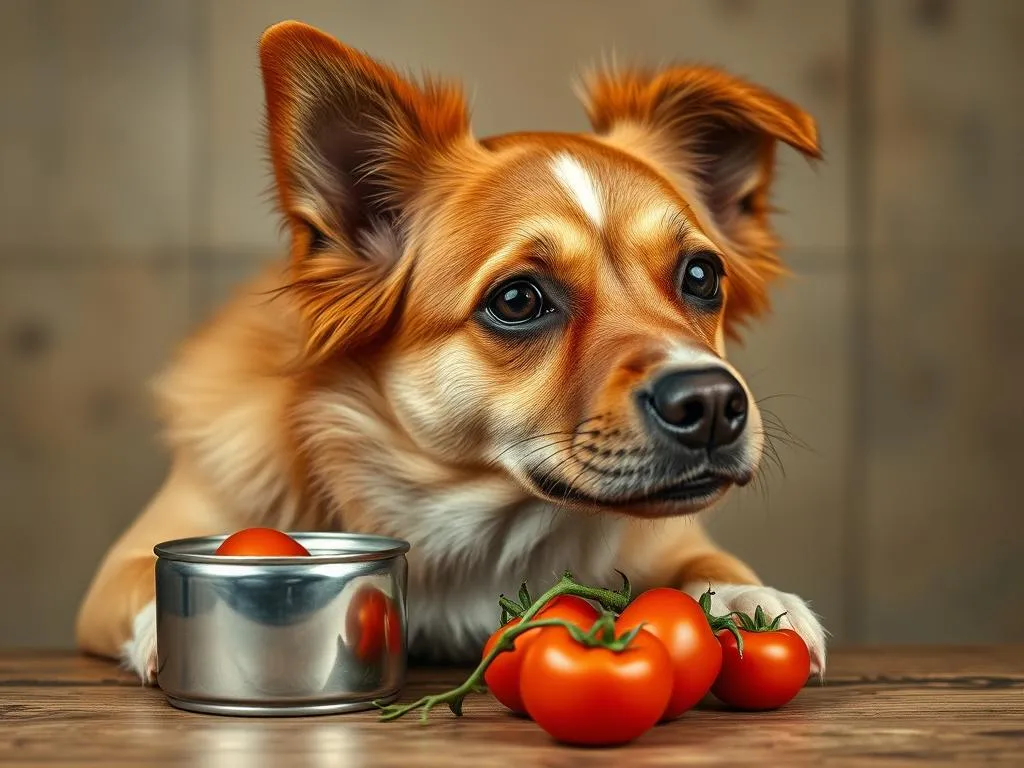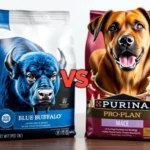
Introduction
Understanding what constitutes a balanced diet for dogs is vital for every pet owner. Dogs, like humans, require a mix of nutrients to maintain optimal health, but many owners hold misconceptions about what foods are safe for their furry friends. This article will delve into one specific query that often arises: can dogs eat tomatoes? Knowing which foods are safe and beneficial versus those that are harmful can significantly affect your dog’s health and longevity.
Understanding Dog Nutrition
Essential Nutrients for Dogs
To ensure your dog thrives, it’s crucial to understand the essential nutrients they need:
- Proteins: Vital for growth, tissue repair, and immune function.
- Carbohydrates: Provide energy and aid in digestion.
- Fats: Important for energy, cell structure, and the absorption of certain vitamins.
- Vitamins and Minerals: Support various bodily functions, including bone health and immune response.
Importance of a Balanced Diet
A well-balanced diet is key to your dog’s overall health and longevity. Poor nutrition can lead to various health issues, including obesity, dental disease, and even chronic conditions like diabetes and heart disease. Ensuring your dog receives a mix of proteins, fats, carbohydrates, and essential vitamins and minerals helps maintain their health and happiness.
Common Foods and Their Effects on Dogs
Human Foods That Are Safe for Dogs
Many human foods can be safely enjoyed by dogs, including:
- Fruits: Apples (without seeds), blueberries, and bananas.
- Vegetables: Carrots, green beans, and cooked sweet potatoes.
Human Foods That Are Toxic to Dogs
Conversely, some common human foods are toxic to dogs, and it’s essential to avoid them:
- Chocolate: Contains theobromine, which is harmful to dogs.
- Grapes and Raisins: Can cause kidney failure.
- Onions and Garlic: Can damage red blood cells.
Why Some Foods Are Harmful
The toxicity of certain foods often stems from specific compounds that dogs cannot metabolize effectively. For instance, chocolate contains theobromine, which can lead to serious health issues, while onions contain compounds that can cause anemia.
The Tomato: A Closer Look
Nutritional Profile of Tomatoes
Tomatoes are rich in several vitamins and minerals, including:
- Vitamin C: An antioxidant that supports the immune system.
- Vitamin K: Important for blood clotting and bone health.
- Potassium: A mineral that helps regulate blood pressure.
While tomatoes provide several health benefits for humans, their effects on dogs require careful consideration.
Parts of the Tomato Plant
It’s crucial to understand the different parts of the tomato plant:
- Ripe Tomatoes: Generally safe for dogs in moderation.
- Green Tomatoes and Tomato Leaves: Contain solanine and tomatine, which are toxic to dogs.
Potential Benefits of Tomatoes for Dogs
When given in moderation, ripe tomatoes can offer several benefits for dogs. The antioxidants present can help combat free radicals, potentially reducing the risk of certain diseases. Additionally, tomatoes can contribute to hydration due to their high water content.
Can Dogs Eat Tomatoes?
Safe Consumption Guidelines
Ripe tomatoes can be a safe addition to your dog’s diet. Here are guidelines to follow:
- Serving Size: Small quantities are best. Start with a few small pieces to see how your dog responds.
- Preparation: Wash thoroughly and remove any stems or leaves before serving.
Risks and Considerations
While ripe tomatoes are safe, there are significant risks associated with other parts of the tomato plant:
- Solanine and Tomatine: These compounds are found in unripe tomatoes and the leaves/stems. They can cause symptoms such as vomiting, diarrhea, and lethargy.
- Symptoms of Tomato Poisoning: If a dog consumes toxic parts of the tomato plant, they may exhibit signs like drooling, abdominal pain, or difficulty breathing.
Expert Opinions and Studies
Veterinarians generally agree that while ripe tomatoes can be safe for dogs, caution is necessary. Studies indicate that the toxic compounds primarily present in unripe tomatoes and other parts of the plant can pose health risks. It’s always best to consult with a veterinarian before introducing any new foods into your dog’s diet.
How to Introduce Tomatoes to Your Dog’s Diet
Preparation Tips
To safely introduce tomatoes to your dog’s diet, consider the following preparation tips:
- Washing: Always wash tomatoes thoroughly to remove any pesticides or chemicals.
- Cooking: Cooking tomatoes can help break down some of the toxic compounds, but it’s essential to avoid added salt or spices.
Safe Ways to Serve
Here are some safe methods for serving tomatoes to your dog:
- Diced: Cut ripe tomatoes into small, manageable pieces.
- Pureed: Blending tomatoes can create a smoother texture that some dogs may prefer.
Monitoring Your Dog’s Reaction
When introducing tomatoes, keep an eye on your dog for any adverse reactions, such as:
- Signs of Allergies: These can include itching, swelling, or gastrointestinal distress.
- When to Consult a Veterinarian: If you notice any concerning symptoms, it’s best to contact your veterinarian for guidance.
Alternative Vegetables and Fruits for Dogs
If you’re looking for other safe options for your dog, consider the following:
Other Safe Vegetable Options
- Cucumbers: Low in calories and hydrating.
- Bell Peppers: Rich in vitamins A and C.
- Zucchini: A low-calorie treat that can be served raw or cooked.
Other Safe Fruits Options
- Blueberries: Packed with antioxidants.
- Bananas: High in potassium and enjoyed by most dogs.
- Watermelon: Hydrating and safe (remove seeds and rind).
FAQs about Dogs and Tomatoes
Can dogs eat ketchup?
Ketchup typically contains sugar and salt, making it an unsuitable option for dogs. It’s best to avoid it and stick to plain tomatoes.
Are sun-dried tomatoes safe for dogs?
Sun-dried tomatoes are not toxic but should be fed in moderation due to their concentrated nature and potential for added salt.
What if my dog eats green tomatoes?
If a dog consumes green tomatoes or any part of the plant besides the ripe fruit, monitor them for symptoms of poisoning and seek veterinary assistance if necessary.
Are cooked tomatoes safe for dogs?
Yes, cooked tomatoes are generally safe for dogs, provided they are cooked without any added seasonings or sauces.
Conclusion
In summary, ripe tomatoes can be a safe addition to your dog’s diet when offered in moderation and prepared correctly. However, it is essential to avoid the toxic parts of the tomato plant—namely, green tomatoes and tomato leaves. Always consult your veterinarian before introducing new foods to ensure your dog’s individual dietary needs are met. Proper nutrition plays a vital role in maintaining a healthy and happy dog, and understanding safe food options is crucial for any conscientious pet owner.









